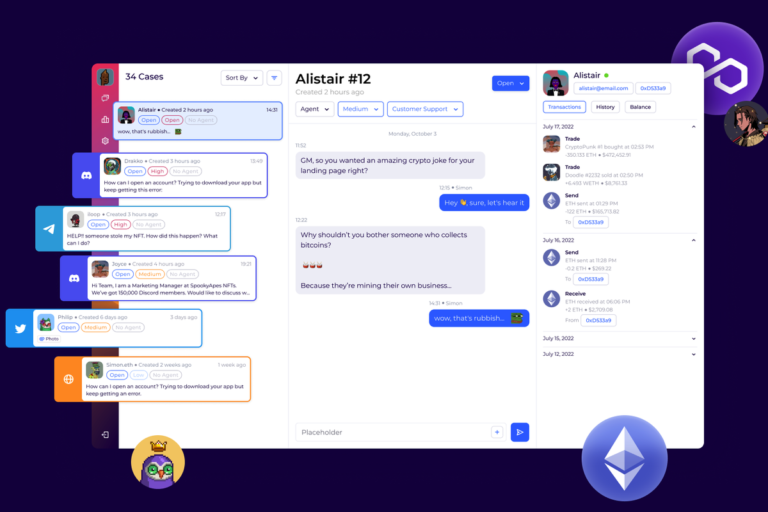
Source: news.google.com
Mava’s mission is to accelerate the world’s transition to web3.
What are some of the barriers currently holding back the mass adoption of web3? User interfaces that are clunky and difficult to use, along with a lack of customer support. You have a problem? Good luck reaching out to the appropriate team member for a quick and accurate response. For support teams too, the deluge of incoming messages from different platforms combined with dozens of spam and DM messages can be overwhelming and it’s hard to keep track of what’s going on. To solve these problems, Mava has created the first web3 customer support platform..
Omnichannel customer service
Users expect to be able to get support from anywhere, and studies have shown that companies with strong omnichannel strategies have a significantly higher retention rate. However, allowing users to communicate with customer support through multiple different channels (e.g. Twitter, Discord, website, Telegram) comes with its challenges: issues are difficult to track, productivity drops due to constant context switching and organizations cannot access any customer service metrics as none of the sources are connected.
Mava connects channels like Discord, Telegram, Twitter, and the web into one powerful and secure dashboard. Support agents can answer questions from one place, assign statuses, tags, and categories, and collaborate with their team members. Support and community managers can access relevant analytics, such as how your team is performing and the topics you’re asked about the most.
Create a safe environment and reduce scams
Security is a major concern for many in the web3 industry. One way scammers target users is by posing as a support agent and obtaining personal details that way. Web3 communities that don’t use dedicated support tools often handle most questions in a public support channel, opening an avenue for scammers to “help” and message unaware community members. . Similarly, if it’s difficult for users to figure out how to contact support, they may resort to publicly tweeting their complaints or questions, which usually results in them being attacked with comments and direct messages from a fake support agent.
Losing money and trust is a sure way to lose customers and it can be difficult to recover from reputational damage. Using dedicated support tools allows communities to set up an official and trusted channel where users can communicate with the team. This helps build trust and a more secure experience, which is especially important for newcomers.
Personalize the customer service experience
A user with little experience in decentralized finance (DeFi) might have difficulty setting up a wallet or connecting to the correct network or chain. On-chain integrations and insights allow web3 organizations to target users with relevant messages to help them get onboarding and getting started. For example, think about sending a message to a user via a chat widget the first time they come to your website and they haven’t connected a wallet yet.
On-chain integrations will also help resolve a problem if users reach out and ask, for example, about a problem they experienced with a recent transaction. Today the flow might look something like this: a support agent asks a user for their wallet address, waits for a response and checks, manually reminds them again if they haven’t responded, then checks in a block explorer and helps to the user, wasting time with each action. Mava is building on-chain integrations so web3 support teams can access all relevant data at their fingertips, enabling a faster and more efficient support experience.
Implementing a support system is a no-brainer for organizations looking to take customer experience to the next level. It enables teams to automate and work more efficiently, stay on top of issues, and gain insights to improve their support. While generic customer support systems will help in certain areas, using a web3 specific tool such as Mava ensures that you can provide consistent and secure support across all social channels used by web3 communities and view on-chain data. to help answer support questions with the relevant data at hand, while remaining privacy conscious.
This post contains sponsored advertising content. This content is for informational purposes only and is not intended to be investment advice.
Read More at news.google.com